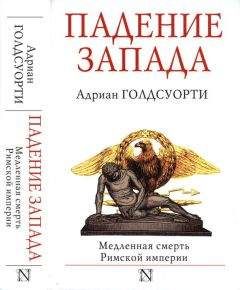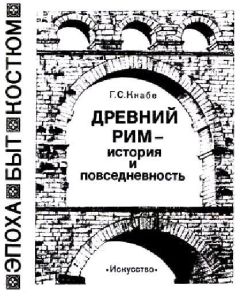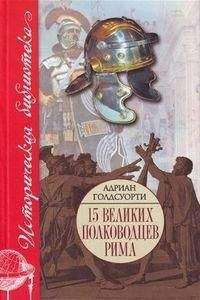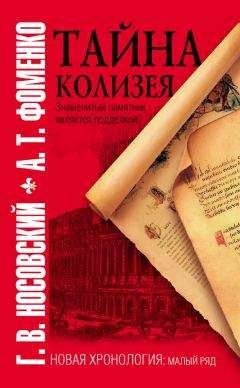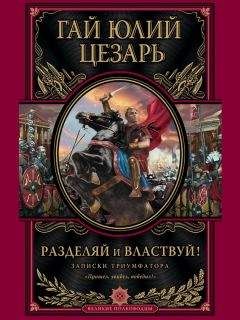153
Diaconescu A. The towns of Roman Dacia: An Overview of Recent Archaological Research // Hanson W., Haynes I. Roman Dacia: The Making of a Provincial Society. Portsmouth, 2004. P. 87—142, особ. см. 128—137.
Lactant. De mortibus persecutorum. 5, см. ссылки на другие источники, а также литературу в книге: Dodgeon M.H., Lieu S.N.C. The Roman Eastern Frontier and the Persian Wars, AD 226—363. A Documentary History. London; New York, 1991. P. 58—63.
Dodgeon, Lieu (1991). P. 65-67, Drinkwater (2005). P. 44-45; Potter D. The Roman Empire at Bay, ad 180—395. London; New York, 2004. P. 256-259; SHA. Trig. tyr. 13-14.
См.: Millar F. The Roman Near East, 31 ВС — AD 337. Cambridge (Mass.), 1993. P. 157-158, 161-173, Lang J. Two Sides of a Coin // Shifting Frontiers in Late Antiquity / Ed. R. Mathisen, H. Sivan. Aldershot, 1996. P. 59-71, особ. см. 61-62; Potter (2004). P. 256, 259-261; Drink-water (2005). P. 45—46.
Об источниках см. в книге: Dodgeon, Lieu (1991). P. 68—80, в особенности см.: SHA. Trig. Туг. 15. 1—8, Gallien. 10. 1—8, 12. 1, Zosim. I. 39.
Об убийстве Одената см.: Dodgeon and Lieu (1991). P. 80—83, специально см.: SHA. Trig. tyr. 15. 5—6, Gallien. 13. 1, Zosim. I. 39, Zo-nar. XII. 24.
Stoneman P. Palmyra and its Empire: Zenobia's Revolt Against Rome. Ann Arbor. 1992. в особенности Р. 31—49.
О культуре см. Millar (1993). Р. 319—336; хорошо иллюстрированный обзор архитектуры города см. в издании: Browning I. Palmyra. London,1979.
Stoneman (1992). P. 61—63, 76—79; важное значение тяжеловооруженной кавалерии отмечается в: Zosim. I. 50.
Stoneman (1992). P. 111 — 127, Watson A. Aurelian and the Third Century. London, 1999. P. 59-66, Dodgeon & Lieu (1991). P 83-86; SHA. Trig. Tyr. 30. 1—3, 12—22, в особенности 30. 12, где утверждается, что Зенобия разрешала Оденату возлечь с ней лишь для того, чтобы иметь детей, и имела обыкновение ждать до тех пор, пока не убеждалась, что не беременна, прежде чем дозволяла ему соединиться с ней вновь; сравнение с Клеопатрой см. CIS. II. 3946; это сходство также подчеркивается в SHA. Trig. Туг. 30. 19—20; Aurelian. 27. 3, Prob. 9. 5.
Lang (1996). Р. 64-69, Dodgeon & Lieu (1991). P. 84-85, 88-89, Potter (2004). P. 266-267 и Millar (1993). P. 171-172.
О работах в храме в Бостресм. IGLS.9107 = AE. 1947, 165; перевод приводится в Dodgeon & Lieu (1991). P. 86; о египетской кампании см. Potter (2004). Р. 266-267, Watson (1999). Р. 61-63, Zosim. 1.44, SHA. Claud. 11. 1—2.
Potter (2004). Р. 261, Watson (1999). Р. 65—66.
Lang (1996). Р. 68-69, Watson (1999). Р 67-69.
Zosim. 1. 50—51; SHA. Aurelian. 22. 1-25. 6, Dodgeon & Lieu (1991). P. 89-95, а также Watson (1999). P. 71-75.
Zosim. I. 52-53.
Watson, (1999). P. 76-80, 81-84, и Dodgeon & Lieu (1991). P. 96-101, где дается разбор основных источников, в том числе Зосима(1. 55); о смерти Кассия Лонгина см.: Zosim. I. 56. 2—3; SHA. Aurelian. 30. 3.
Watson (1999). Р. 82-83, Dodgeon & Lieu (1991). P. 101-105.
См. детальное — и возможно, приукрашенное — описание триумфа в SHA, Aurelian. 33. 1—34. 6; об участи Зенобии см. Zosim. I. 59, Zonar. XII. 27, SHA. Trig. Туг. 30. 27, Eutrop. IX. 13. 2, Hieronym. Chron. 223; см. также: Watson (1999). P. 83-88 и Dodgeon & Lieu (1991). P. 105-109.
SHA.Aurelian. 18.3-4,21. 1-3, Zosim. I. 48-49, Dexipp. FGH II no. 100, fr. 6. 2, а также Watson (1999). P. 48—52, 54—56 и Potter (2004). P. 269-270.
Watson (1999). Р. 138—140 о раздаче пищи городскому населению и Р. 143—152 о стенах.
Euseb. Eccl. Hist. VII. 11. 10; см. работу М. Эдвардса «Кембриджская древняя история» (САН. Vol. XII. 2nd ed. Cambridge, 2005. P. 637— 647; в действительности автором соответствующего раздела является Г. Кларк: Clarke G. Persecution under Valerian and Gallienus // Ibid. P. 637-647), Potter (2004). P. 255.
Дискуссию о данном эпизоде см. в работе: Millar F. Paul of Samosata, Zenobia and Aurelian // JRS. Vol. 61. 1971. P. 1 — 17.
См.: Drinkwater (2005). Р. 53—54, Syme R. Emperors and Biography: Studies in the Historia Augusta. Oxford, 1971. P. 245—246, Potter (2004). P. 274-275 и Watson (1999). P. 104-112.
SHA. Tac. 13. 2—3, Zosim. 1. 63. 1; Zonar. XII. 28 о набегах; Aurel. Vict. De Caesar. 36; SHA. Tac. 13. 5, Zosim. I. 63.
См.: Drinkwater (2005). Р. 54-57 и Potter (2004). Р. 275-279.
Mitchell S. Cremna in Pisidia: An Ancient City in Peace and War. London, 1995. P. 177—218, где проводится обсуждение истории осады и дается анализ литературных и археологических источников; сообщение Зосима с упоминанием о смерти Лидия см.: Zosim. I. 69.
См.: Drinkwater (2005). Р. 56-58 и Potter (2004). Р. 279-280.
Источники см.: Dodgeon & Lieu (1991). P. 112—121.
Zosim. I. 73.
См.: Frye R. The Sassanians // САН. 2nd ed. Cambridge, 2005. P. 470-471.
См., например: Heather P. The Fall of the Roman Empire: A New History. London, 2005. P. 58—67 и в особенности Р. 60, 64.
Potter (2004). Р. 256, Dodgeon & Lieu (1991). P. 67, 297 и в особенности: Lieu S. Captives, Refugees and Exiles // The Defence of the Roman and Byzantine East/ Ed. P. Freeman, D. Kennedy. Oxford, 1986. P. 475—505.
Herodian 1.1. 4—5. Пер. А.И. Доватура.
Домициана упоминает Зосим: Zosim. 1.49; см. также: SHA. Gallien. 2. 6, Trig. Туг. 12. 14, 13.3.
Что касается дискуссии по проблеме «кризиса III в»., см. полезное введение в работу: Watson A. Aurelian and the Third Century. London, 1999. P. 1—20; Jones A.H.M. The Later Roman Empire, 284—602. Vol. 1. Oxford, 1964. P. 1 —36, Alfoldy G. The Crisis of the Third Century As Seen By Contemporaries// Greek, Roman, and Byzantine Studies. Vol. 15 1974. P. 89— 111; Liebeschuetz W. Was There a Crisis of the Third Century? // Crises and the Roman Empire. Eds. O. Hekster, G. Kleijn & D. Slootjes. Leiden; Boston, 2007. P. 11—20. Обзор состояния проблемы в целом см.: MacMullen R. Roman Government's Response to Crisis, AD 235—337. 1976 и Corruption and the Decline of Rome (1988). Новейший пересмотр, по-прежнему содержащий весьма унылую картину данного периода, см. в исследовании: Blois de L. The Crisis of the Third Century A.D. in the Roman Empire: A Modern Myth? // The Transformation of Economic Life Under the Roman Empire. Network Impact of Empire, Nottingham, July 4—7, 2001 / Eds. L. de Blois & J. Rich. Amsterdam, 2002. R 204—217. Более позитивную оценку периода см. в работе: Witschel C. Re-evaluating the Roman West in the 3rd с A.D. // Journal of Roman Archaeology. Vol. 17. 2004. P. 251—281. Оценку периода в большей степени как переходного, нежели как кризисного, см. в работе: R. Reece, «The Third Century: Crisis or Change?» // The Roman West in the Third Century: Contributions From Archaeology and History / Eds. A. King & M. Henig. London, 1981. P. 27—38. Удачную подборку мнений на эту и другие темы, имеющие отношение к падению Римской империи, см. в книге: The Fall of Rome: Can it be Explained? / Ed. M. Chambers. New York, 1963.
Jones (1964). Р. 9-11, 20—23, 29—32, Hopkins К. Taxes and Trade in the Roman Empire (200 ВС-AD 400)//JRS. Vol. 70. 1980. P. 101-125, а также работу: Corbier M. Coinage and Taxation: the State's Point of View, A.D. 193-337 // САН. 2nd ed. Vol. XII. Cambridge, 2005. P. 360-386.
О девальвации и ее возможных последствиях см. работу Corbier в САН2 2005. Р. 330—360; Howgego С. Coin Circulation and the Integration of the Roman Economy // Journal of Roman Archaeology. Vol. 7. 1994. P. 6—21, в особенности 12—16, de Blois (2002). P. 215—217, Duncan-Jones R. Money and Government in the Roman Empire. Cambridge, 1994, в особенности P. 20—32, и Blois L. de. Monetary Politics, the Soldiers' Pay, and the Onset of Crisis in the First Half of the Third Century AD // The Roman Army and the Economy. Ed. P. Erdkamp. Amsterdam, 2002. P. 90—107.
См. работы: Bruun С. The Antonine Plague and the Third Century Crisis // Crises and the Roman Empire. P. 201—217, и Jongman W. Gibbon was Right: The Decline and Fall of the Roman Economy // Crises and the Roman Empire. P. 183—199. В обеих работах доказывается, что в III в. наблюдался серьезный упадок в экономике и сокращение численности населения.
MacMullen R. The Epigraphic Habit in the Roman Empire // American Journal of Philology. Vol. 103. 1982. P. 233-246.
Hopkins (1980). Р. 105—108, а также Parker A. Ancient Shipwrecks of the Mediterranean and the Roman Provinces. Oxford, 1992; о торговле с Индией и Китаем см.: Young G. Rome's Eastern Trade. International. Commerce and Imperial Policy, 31 ВС — AD 305. London; New York, 2001. P. 80-88, 126-128.
См.: Witschel (2004), в особенности Р. 261—274; Bar D. Was there a 3rd. С. economic crisis in Palestine? // The Roman and Byzantine Near East/Ed. H. Humphrey. Vol. 3. Portsmouth, 2002. P. 43—54, Reece(1981), MacMullen (1988). P. 23—35, а также: Todd M. Roman Britain. 3rd ed. Oxford, 1999. P. 156-178.
О предполагаемом предпочтении германцами более старых серебряных монет см.: Todd M. The Early Germans. 2nd ed. Oxford, 2004. P. 98—101, где данная точка зрения оценивается скептически.
Wilson A. Machines, Powerand the Ancient Economy//J RS. Vol.92. 2002. P. 1—32, в особенности Р. 24—31.
См. теорию о том, что упадок численности населения стал одной из важнейших причин падения Римской империи в работе: Boak A. Manpower Shortage and the Fall of the Roman Empire in the West. 1955. Об экономике в целом см. работу Jongman W. The Roman Economy: From Cities to Empire // The Transformation of Economic Life Under the Roman Empire (2002). P. 28—47.
